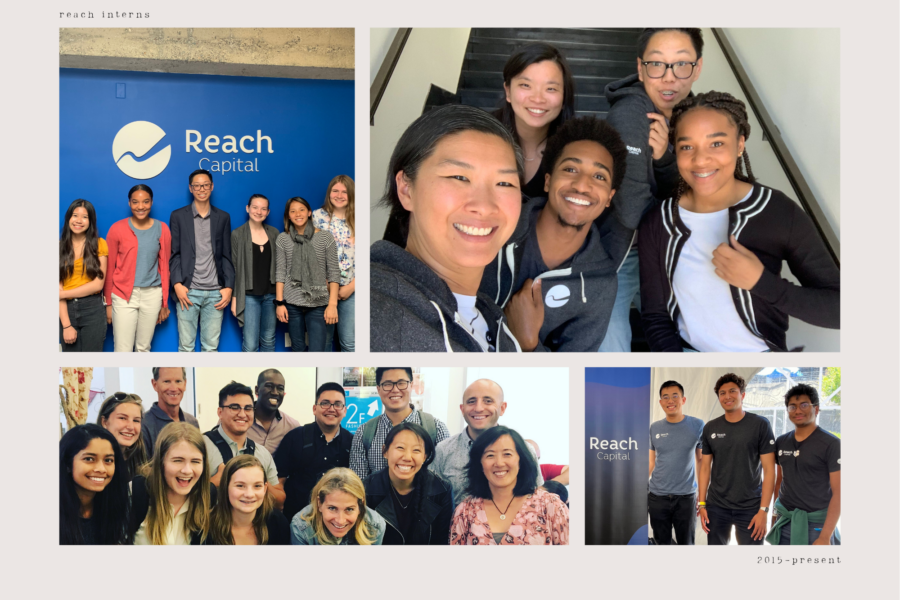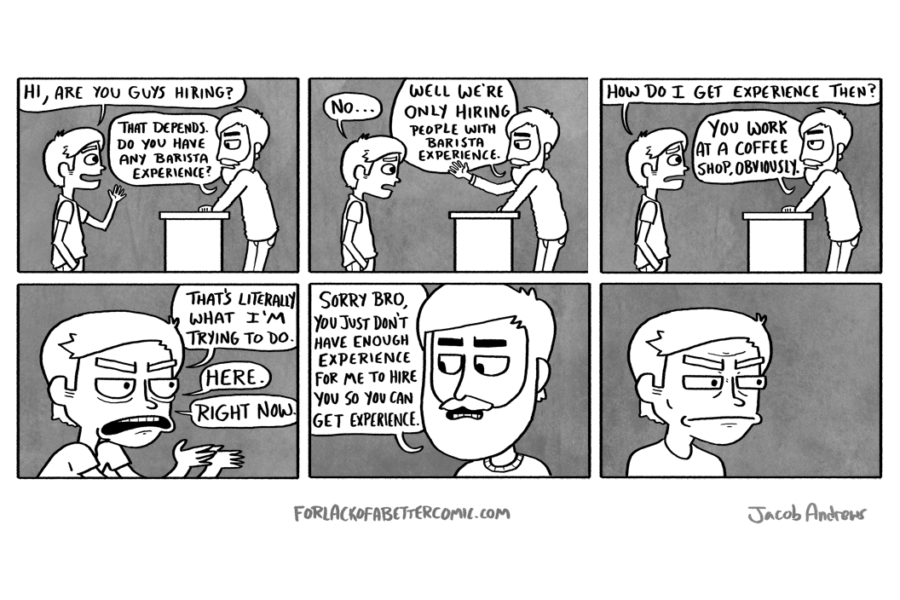Dear Class of the Future,
What a time to be alive! You are entering the market at a moment of unprecedented technological acceleration, one that can feel both exhilarating and frightening.
Every generation faces its defining technological shift. For your predecessors, it was the internet and mobile smartphones. Today, it’s artificial intelligence that is rewriting the rules of how we live, learn, and work.
This transformation is also rewiring employer expectations and the very nature of entry-level jobs. We know that undergrads in particular are facing a new job landscape with many challenges and unknowns. My partner Shauntel has written about the “Catch-22” that many first-time job seekers today face: not being able to get a job because they lack experience, and not having experience because they can’t get a job.
Here’s the good news: AI may be changing the game, but human hustle still makes the difference. Drawing from our own long-running internship program at Reach Capital, here are some things that consistently help applicants stand out. These tips aren’t just about landing an internship here or working in venture capital; they’re about building the foundation for a successful career in any industry.
Preparation
1. Do your homework! With Generative AI, you have unprecedented access to information; access none of us would have imagined just five years ago. This also means expectations are high in terms of how in-depth you should prepare for an interview.
For us at Reach Capital, that means coming in with a solid understanding of: 1) how venture capital works, 2) what Reach Capital does and the types of companies we invest in, and 3) who’s on our team and the skills we bring. Beyond that, I’m looking for a genuine and unique perspective or a strong point of view that reflects deep interest and passion:
- What part of our investment focus or which companies interest you most, and why?
- Has your own education, or someone close to you, shaped how you think about learning or edtech?
- What technological trends in education are you most excited about? What are the greatest pain points facing the education system today and what solutions are you eager to see solve these challenges?
2. Value you can bring on Day 1. We’ll be honest: interns can sometimes create more work than they save. But at Reach, we believe deeply in the value of hands-on experience and learning in the flow of work. My partner Jennifer recently wrote about why internships matter — not only because it teaches financial responsibility and accountability, but more importantly, because it shapes a more capable, self-aware, and adaptable individual.
We’re not just looking for a resume rundown of every job or a list of every nonprofit you’ve ever started or volunteered with. Instead, choose a couple of meaningful experiences, whether from school, work, hobbies, or volunteering and go deep. Show us how you built real skills (for students like thesis building, market research, writing, or tutoring), what challenge you faced, how you navigated it, and what insight you gained. What really matters is how quickly you learned and how much you grew from the experience, which is a critical skill working at a startup or in venture capital.
Most importantly, connect it back to the day-to-day work at the firm. For Reach, some relevant student examples may be:
- Connecting your studies to the real world: “In macroeconomics, I learned how shifts in interest rates and federal policy can influence investment trends. This perspective helps me understand how external forces affect early stage startup funding and growth.”
- Sharing actionable feedback: “I use Desmos in Algebra, and it transformed my experience learning math by making it more interactive, visual, and accessible. While the simplicity of the interface is one of Desmos’s strengths, I occasionally found myself wanting more in-depth guidance or scaffolding, especially when approaching more complex topics. A built-in feature that explains the ‘why’ behind the graphs, almost like a digital tutor, could make the platform even more powerful for independent learning.”
Employers and startups are looking for thoughtful, relevant connections between your past experiences and what excites you about working with them. That’s how they start to understand your strengths and your potential impact. There is no right or wrong answer; we’re primarily looking for your ability to think critically and apply your curiosity and skills to the work.
Mindsets
Internships at venture funds and startups are rare; most don’t hire large entry-level cohorts. Landing one often takes persistence, hustle, and serious initiative.
- Hustle and grit: One of our best interns last summer? An 11th grader from the East Coast who cold DMed us on X. He shared edtech tools he loved, offered user insights, and even made intros to founders and new startups from his own personal network. He had no prior VC connections; just an instinct for research, genuine passion, and the drive to stand out. He moved solo to SF, lived in a hacker house with adult engineers, and commuted to our office every day, two buses each way. That’s the kind of grit that makes a difference.
Never underestimate the value of non-desk, non-tech jobs. Some of the grittiest, most grounded candidates started out bagging groceries, waiting tables, or working on farms, roles that teach resilience, responsibility, and real-world work ethic.
- Curiosity and resourcefulness: Hard work is a non-negotiable, but you should also work smart. How do you use tools like AI to get the job done? We’re not talking about just for homework hacks, but rather how you are using it to truly uplevel your skills and complement what you’re learning in school. Whether it’s market research, data analysis, advanced math, or experimenting with writing styles, the opportunity is massive.
AI literacy is quickly becoming essential across every industry: law, finance, journalism, art, music, even theater. You don’t need to be a CS major or have deep technical chops, but you do need to understand how these tools work and how to use them well. No matter your major, start practicing: code on platforms like Replit or Cursor, design in Canva or Figma. These skills are quickly becoming the baseline for the future of work. As the CEO of Shopify wrote in his “leaked” memo to his company, “reflexive AI usage is now a baseline expectation” at any and all jobs going forward.
- Adaptability, entrepreneurial mindset and non-consensus thinking: The venture and startup ecosystems prize candidates who take risks, thrive outside their comfort zone, and can adapt in chaos, because no two days are the same. It’s a world of many unknowns, so being able to navigate and feel motivated with that level of uncertainty is part of the job. Being able to share challenging moments where you had to tackle complex problems and also reflect on your learnings is very important.
At Reach, we are in the business of spotting outliers and making bold decisions with limited data, so we value people who bring sharp insights, fresh perspectives, and a prepared mind around the markets we invest in. Great candidates are curious, talk to users, show emotional intelligence, and can connect deeply with founders. And since early-stage investing comes with high odds of failure, humility and self-reflection matter just as much as ambition.
- Passion follows purpose: Over the years, my mentors have consistently shared a valuable lesson with me: passion isn’t something you stumble into, it’s something you build over time through effort, curiosity, and commitment. Lean into developing and mastering your skills across different job experiences to discover what sparks your interest, and let that deepen through exploration and consistent work.
NVIDIA CEO Jensen Huang echoed this idea when he advised students to stop chasing their passion and instead find joy and meaning in whatever task they’re doing, no matter how big or small the responsibility. That mindset has changed the way I approach learning in venture capital. Especially in today’s job market, it’s not about landing the “perfect” first role or chasing big-name logos; it’s about showing up with curiosity, engaging in the work and continually refining your skills.
- Gratitude: Finally, always follow up with a thank-you. You would be surprised how few do. A thoughtful note that highlights something you learned from the conversation or a topic you’re curious to explore further goes a long way. It not only shows appreciation, but gives the interviewer insight into how you think, learn, and what matters to you. Even if the answer from the employer is “not this time,” assume it’s really just “not yet.” Gratitude leaves a lasting impression and in this industry, people remember.




